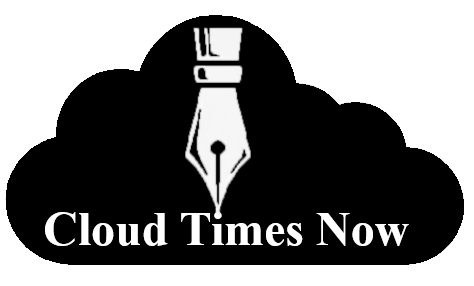Let’s explore the key differences between digital marketing and a digital agency:
Digital Marketing:
- Definition: Digital marketing refers to the execution of various online strategies aimed at promoting a business or product.
- Focus: It primarily revolves around creating engaging content to capture the attention of prospective customers.
- Channels: Digital marketing activities occur through channels such as websites, search engines, email, and social media.
- Role: Digital marketing drives online traffic and aims to acquire, manage, and retain customers.
- Execution: Businesses can handle digital marketing in-house or hire specialized agencies for specific tasks.
Digital Agency:
- Definition: A digital agency provides custom solutions to maximize customer growth through detailed customer insights and engagement strategies.
- Holistic Approach: Unlike digital marketing, a digital agency takes a holistic approach. It focuses on creating integrated plans that span customer acquisition, conversion optimization, and loyalty programs.
- Expertise: Digital agencies offer well-rounded expertise in design, technology, strategy, communications, and analytics.
- Client Success: Their goal is to create an overall strategy for client success, considering various aspects beyond just online traffic.
- Services: Digital agencies can handle all aspects of digital marketing, including planning, execution, and monitoring.
In summary, digital marketing drives online visibility, while a digital agency creates a comprehensive strategy tailored to individual businesses’ needs. Choosing the right partner depends on your specific goals and requirements!
 What services does a typical digital agency offer?
What services does a typical digital agency offer?
A typical digital agency offers a range of services to help businesses establish and enhance their online presence. Here are some common services provided by digital agencies:
Website Design and Development:
Digital agencies create visually appealing and functional websites. They handle everything from design and layout to coding and user experience optimization.
Search Engine Optimization (SEO):
SEO aims to improve a website’s visibility in search engine results. Digital agencies optimize content, keywords, and technical aspects to boost organic traffic.
Content Marketing:
Content creation, distribution, and promotion are essential for engaging audiences. Digital agencies develop content strategies, create blog posts, videos, and other relevant materials.
Social Media Management:
Agencies manage social media profiles, create content, schedule posts, engage with followers, and analyze performance metrics.
Paid Advertising (PPC):
Digital agencies run pay-per-click (PPC) campaigns on platforms like Google Ads, Facebook, or Instagram. They optimize ad spend to maximize ROI.
Email Marketing:
Agencies design email campaigns, segment audiences, and track open rates and click-through rates.
Analytics and Reporting:
Digital agencies analyze data to measure campaign effectiveness. They provide regular reports and insights to clients.
Conversion Rate Optimization (CRO):
Improving website conversion rates is crucial. Agencies test and optimize landing pages, forms, and calls-to-action.
Mobile App Development:
Some digital agencies specialize in creating mobile apps for iOS and Android platforms.
E-commerce Solutions:
Agencies help businesses set up and optimize e-commerce platforms, including payment gateways and inventory management.
Branding and Identity:
Digital agencies work on brand development, logo design, and maintaining consistent brand messaging.
User Experience (UX) Design:
Focusing on user satisfaction, digital agencies enhance website usability and accessibility.
How do I find the right digital agency for my business?
Finding the right digital agency for your business involves a thoughtful process. Here are some steps to help you identify the best fit:
Define Your Goals and Budget:
Start by clarifying your objectives. Are you looking for website redesign, SEO, social media management, or a comprehensive digital strategy?
Determine your budget. Different agencies cater to different price points.
Research and Referrals:
Online Research: Search for digital agencies online. Look at their websites, case studies, and client testimonials.
Referrals: Ask other business owners, colleagues, or industry contacts for recommendations.
Evaluate Their Expertise:
Industry Experience: Consider agencies with experience in your industry. They’ll understand your unique challenges.
Services Offered: Ensure the agency provides the services you need (e.g., web design, SEO, content marketing).
Portfolio: Review their portfolio to see the quality of their work.
Check Their Reputation:
Online Reviews: Look for reviews on platforms like Google, Clutch, or Yelp.
Social Media Presence: Check their social media profiles and engagement levels.
Meet with Potential Agencies:
Initial Consultation: Arrange a meeting or call with shortlisted agencies. Discuss your goals and gauge their understanding.
Ask Questions:
What’s their approach to digital strategy?
How do they measure success?
Who will be your main point of contact?
What’s their team structure?
Culture Fit and Communication:
Consider the agency’s culture. Do their values align with yours?
Communication is crucial. Ensure they’re responsive and transparent.
Understand Their Process:
Ask about their project management process, timelines, and milestones.
How do they handle revisions and feedback?
Pricing and Contracts:
Get detailed pricing information. Understand what’s included and any additional costs.
Review the contract carefully before signing.
Visit Their Office (if possible):
A physical visit can give you insights into their work environment and team dynamics.
Trust Your Instincts:
Ultimately, trust your gut feeling. Choose an agency that resonates with you and understands your vision.
Remember that finding the right agency is a collaborative effort. Take your time, ask questions, and choose wisely! 🌟
Checklist for evaluating digital agencies:
Certainly! Evaluating a digital agency is crucial to finding the right partner for your business. Here’s a checklist to guide you through the process:
Proposal Assessment:
Review the agency’s proposal. Does it align with your goals and expectations?
Look for clarity on services offered, pricing, and deliverables.
References and Case Studies:
Check out their references and client testimonials. Ask for case studies.
Evaluate their track record and results with other clients.
Meet the Team:
Arrange a meeting with the agency’s team members.
Understand their expertise, communication style, and responsiveness.
Portfolio Evaluation:
Examine their previous work. What kind of projects have they handled?
Consider the quality of their designs, websites, and campaigns.
Results and ROI:
Ask about the outcomes they’ve achieved for clients. What kind of return on investment (ROI) have they delivered?
Look for measurable success stories.
Pricing and Contracts:
Understand their pricing structure. Is it transparent and reasonable?
Check contract terms. Ensure flexibility and an exit clause if needed.
Agency Culture and Energy:
Visit their office if possible. Get a feel for their work environment and company culture.
Gauge their enthusiasm and energy during interactions.
Remember that finding the right agency involves both objective evaluation and subjective impressions. Trust your instincts and choose an agency that aligns with your business vision! 🌟
How AI can work on digital marketing?
AI in digital marketing refers to using artificial intelligence technologies to automate tasks, analyze data, and optimize marketing campaigns. Let’s explore how AI can enhance various aspects of digital marketing:
Data Analytics:
AI can process large datasets quickly and extract valuable insights. It helps marketers understand customer behavior, preferences, and trends.
By analyzing data, AI identifies patterns, predicts outcomes, and informs decision-making.
Content Creation and Personalization:
AI tools like Jasper and Writer assist in content generation. They can create blog posts, social media updates, and other relevant materials.
Personalization is crucial. AI tailors content based on user behavior, ensuring relevant experiences for each customer.
Automated Marketing Tasks:
AI automates repetitive tasks, such as email marketing, lead scoring, and campaign optimization.
Tools like Optimove and Evolv.ai use AI algorithms to enhance customer experiences in real-time.
Media Buying and Ad Optimization:
AI analyzes ad performance data and adjusts bidding strategies to maximize ROI.
It optimizes ad placements, targeting, and budget allocation across platforms.
Chatbots and Customer Service:
AI-powered chatbots handle customer inquiries, provide instant responses, and improve user engagement.
Manychat and similar tools use natural language processing (NLP) to interact with customers on social platforms.
SEO and Search Engine Marketing:
AI tools like Surfer SEO analyze on-page optimization, compare against top-ranking pages, and suggest improvements.
They help improve search engine rankings and organic traffic.
Predictive Analytics:
AI predicts future outcomes based on historical data. Marketers can anticipate customer behavior and adjust strategies accordingly.
Remember, AI complements human efforts—it doesn’t replace them. Marketers need to understand AI’s capabilities and integrate it strategically to enhance their digital marketing efforts!

